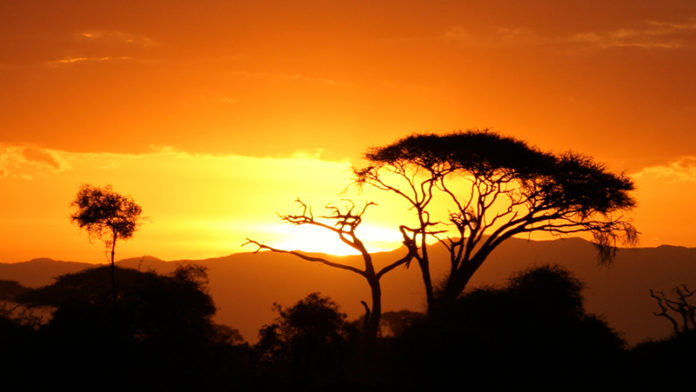
HARMONY Gold will consider renewing its Africa expansion strategy as new opportunities in South Africa’s gold sector had all but dried up, said CEO, Peter Steenkamp.
“We need to consolidate first. But if you want to be a pure gold company, you will have to look at other frontiers outside of South Africa,” he said.
The R67bn Johannesburg-listed firm will take operating control of Mponeng mine, and the Mine Waste Solutions (MWS) businesses from AngloGold Ashanti in October – a move analysts say will lift the group’s average grade and improve cash flow.
But Steenkamp said in an interview with Miningmx that the ‘AngloGold strategy’ had now run its course. “Four years ago, we had a broad range of opportunities, so we decided to buy 50% of Hidden Valley (a mine in Papua New Guinea) and wrap up the AngloGold mines in South Africa which we have followed diligently” he said.
Earlier this week, Harmony confirmed it had concluded the purchase of Mponeng and MWS for $300m. In 2018, it bought AngloGold’s Moab Khotsong, also for $300m. The two deals are worth 600,000 ounces a year in gold production.
“Now we will see what we can take forward,” Steenkamp said. He acknowledged expanding into Africa would “not be easy” as potential transactions might not call for the firm’s skill set of extracting synergies from existing mines. Steenkamp said the group would therefore look at company mergers and acquisitions.
Harmony also has two ‘below infrastructure’ projects in Zaaiplaats, at Moab Khotsong as well as potential to expand Mponeng – a project that AngloGold Ashanti was not keen to pursue set against its other growth options.
Harmony’s major growth play is its 50% stake in the Wafi-Golpu copper/gold project in Papua New Guinea (PNG), currently the subject of partnership memorandum which has been held up by internal politics. James Marape, president of PNG, took power last year on a nationalist ticket in which he pledged to return the country’s resources to its people.
A guideline aired in the country’s parliament for the state to own 60% to 65% of new projects would not apply to Wafi-Golpu, however. “We have been assured the project is subject to the old mining law,” said Steenkamp.
DIVIDENDS
Before either of those options materialises, however, the focus on free cash flow generated in the 2021 financial year will be on debt reduction. Boipelo Lekubo, Harmony’s financial director, acknowledged that at the current clip of cash generation, the company was well positioned to erase net debt by the interim stage.
“I think it’s safe to say that should the (gold) price hold, we will pay down debt,” said Lekubo. Net debt totalled R1.36bn as of June 30 after a free cash inflow of R1.1bn compared to an outflow in the 2019 financial year of R400m.
Lekubo said the forward gold sales programme, in which 20% of production – about 260,000 ounces based on Harmony’s 2021 production guidance of up to 1.3 million oz – was being locked in at higher average prices. Harmony’s 2020 financial yar average price was R796,000/kg, but gold had been sold forward in the evolving book at R1m/kg.
In terms of Harmony’s capital allocation framework, it has prioritised debt repayment, projects and dividends. Given the fact the group wanted to consolidated Mponeng first, Lekubo said it was likely the board would sit down to discuss an interim dividend.
Arnold van Graan, an analyst for Nedbank Securities said in a note today that the absence of dividend payments meant Harmony lagged its peer group. “Harmony falls short of peers that have delivered much stronger operating and free cash flow and are paying dividends,” he said.
Said Lekuba: “We would like to be a dividend payer”.











